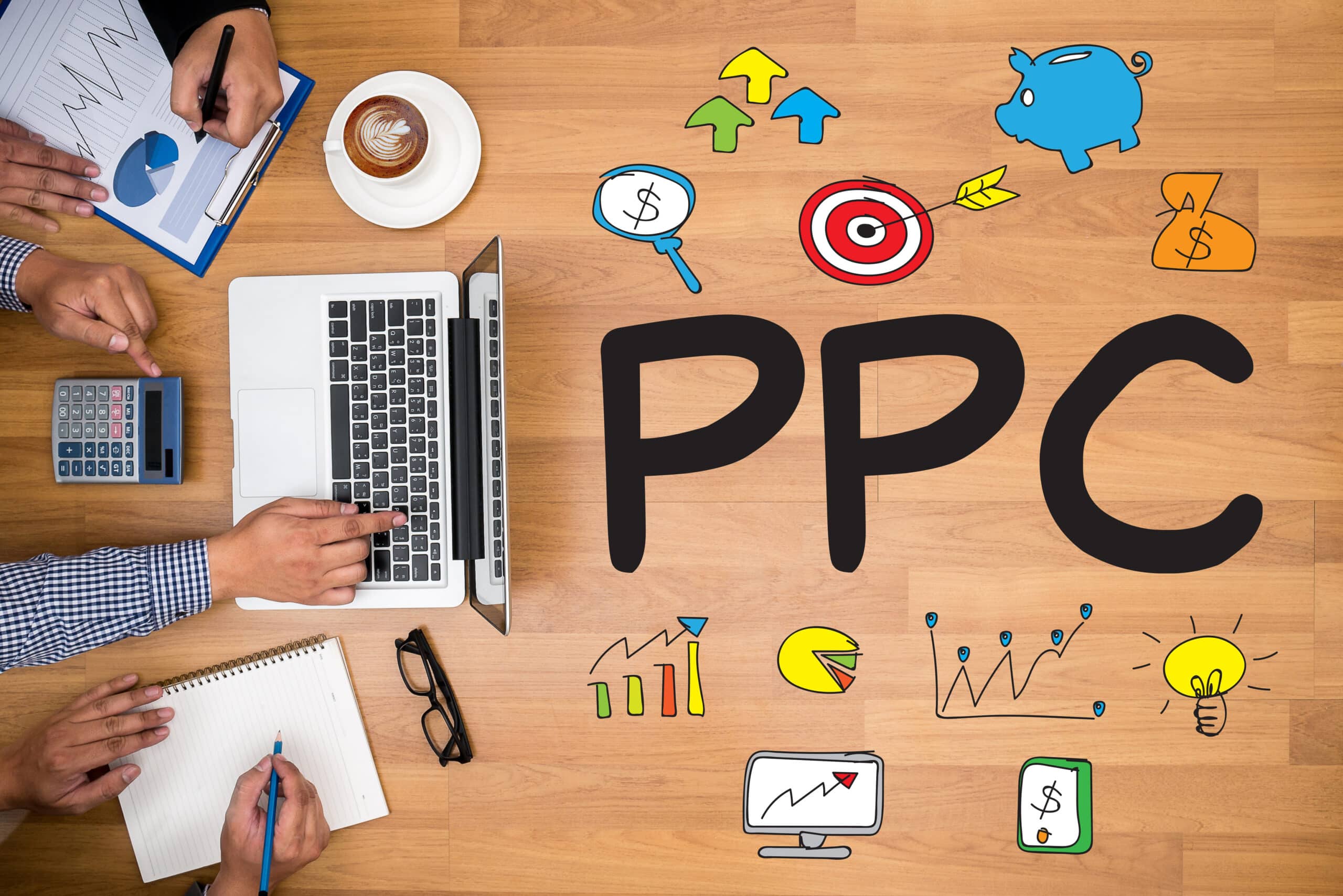At the heart of every non-profit organisation is a mission fueled by passion and a commitment to making a difference. These organisations thrive with the support of donations and volunteers, which are the lifelines that sustain their activities and aspirations for their cause.
In today’s fast-paced digital world, it’s increasingly important for non-profits to adopt effective online marketing strategies to secure these vital resources and achieve their objectives. Here, PPC (Pay-Per-Click) advertising stands out as a strategic asset. It provides an effective platform for non-profits to enhance their online presence, engage with a broader audience, and spotlight their initiatives.
But how does one run an effective PPC campaign for a non-profit organisation? What elements must be considered, and what PPC strategies should be implemented to ensure the highest return on investment?
Let’s navigate through the intricacies of PPC for non-profits, enhancing digital advertising strategies to raise awareness effectively and elevate missions to new heights.
Understanding The Power Of PPC For Non-Profit Organisations
Before jumping into the mechanics of PPC for non-profits, understanding its multifaceted benefits is vital. Here’s how a non-profit organisation’s PPC campaign works to help them reach their goal:
1. Targeting specific audiences
PPC allows non-profit organisations to direct their campaigns towards specific groups of users. By utilising targeting options like demographics, interests, geographical location, and even specific times of the day, non-profits can ensure their messages reach those most likely to engage and convert.
2. Achievable and measurable results
Unlike traditional forms of advertising, PPC offers real-time tracking and analysis capabilities. This means non-profits can monitor their campaign performance, measure their return on investment (ROI), and gain invaluable insights into user behaviour. These data-driven insights can help fine-tune strategies and optimise PPC campaigns for tremendous success.
3. Optimising SEO through PPC insights
PPC advertising campaigns offer immediate insights, pinpointing keywords that not only drive traffic but also lead to conversions. Non-profits can harness this data to enhance SEO strategies, focusing on high-performing keywords for better organic search results.
4. Leveraging Google Ad grants
This unique programme by Google provides eligible non-profits with up to S$13,500 monthly in free advertising on the Google Search network. PPC can significantly increase a non-profit’s online visibility, driving more traffic to its website and amplifying its message to a larger audience without straining its budget.
5. Integrating with other digital marketing channels
PPC campaign for non-profits is a powerful tool, seamlessly integrating with social media, email, and content marketing to amplify their cause. This approach ensures a cohesive, impactful message across digital platforms, boosting visibility and driving traffic, leads, and sales.
6. Stability Amidst Algorithm Changes
PPC ads offer a consistent platform for non-profit outreach, largely unaffected by search engine algorithm changes as they operate on a paid bidding system rather than organic search rankings. This stability is vital for maintaining audience visibility and engagement without the need for frequent modifications to SEO tactics.
Crafting Successful PPC Campaigns For Non-Profit Organisations

Armed with a deeper understanding of PPC’s value, you can focus on crafting effective campaigns for your non-profit organisation. Let’s dive into the vital steps to consider for a truly effective strategy:
1. Setting clear campaign objectives
Every successful PPC campaign starts with clear and measurable objectives. Do you aim to drive more donations, raise awareness for a particular cause, attract more volunteers, or promote an upcoming event?
Defining your non-profit organisation’s goals upfront directs your campaign, guiding everything from keyword selection to ad copy and landing page design. Moreover, clear objectives offer a benchmark against which to measure your campaign’s success.
2. Targeting the right keywords
The cornerstone of PPC advertising is keyword targeting. By bidding on the keywords your target audience will likely use when searching for causes like yours, you can ensure your ads appear in relevant search results. A balanced keyword strategy should include the following:
- Head keywords: These are short, generic terms with high search volume and competition. For example, “charity donations”.
- Long-tail keywords: These are longer, more specific phrases with lower search volume and competition. For instance, “donate to children’s education charity”. Long-tail keywords typically have a lower cost-per-click (CPC) and can often lead to higher conversion rates as they align more closely with a user’s intent.
- Broad match keywords: These are the least restrictive type, allowing ads to show for searches related to the keyword’s meaning and intent, not just the exact terms. For example, an ad for “support children with critical illnesses” might appear for searches like “children’s hospital donations”. This approach broadens your reach, potentially attracting a wider audience interested in related topics.
3. Crafting compelling ad copy
Your PPC ad copy should be compelling, concise, and straightforward to convince users to click it. Here’s how to achieve this:
- Strong headlines: Your headline is the first thing users see. Make it count by ensuring it is engaging and relevant to the user’s search query. Use action verbs or create a sense of urgency.
- Descriptive meta descriptions: Use the description to communicate the specifics of your cause and what the user can do to help (your call to action).
- Emotional appeal: Non-profit organisations have the unique advantage of tapping into users’ emotions. If appropriate for your brand and cause, consider using expressive language to motivate users to take action.
4. Optimising landing pages
The journey of PPC campaigns for non-profit organisations doesn’t end with a click on your ad. The landing page a user arrives at after clicking must continue the narrative your ad started and guide users towards conversion. Here’s how to optimise your landing pages:
- Relevant content: The content on your landing page should match your ad’s promise. If your ad is about donating to a specific cause, the landing page should provide detailed information about that cause and demonstrate how donations can make a difference.
- Clear and compelling CTAs: Your CTA, whether it’s “Donate Now”, “Sign Up to Volunteer”, or ‘Learn More’, should be prominently displayed and motivate users to take action.
- User-friendly design: Make sure your landing page has a fast loading speed, visually appealing design, and easy navigation to avoid high bounce rates and lost conversion opportunities.
- Relevant images or videos: Utilise images or videos to captivate and retain the audience’s attention. Showcase scenes from your non-profit organisation, such as volunteer teams in action or heartwarming moments made possible by donations to engage and inspire potential supporters.
- Build credibility: Highlight your non-profit’s achievements, share compelling testimonials, and spotlight specific events. These elements increase credibility, further engaging and convincing users to support your initiatives.
Utilising Geo-Targeting For Localised Campaigns

For many non-profits, the local community is a vital source of support. This is where PPC geo-targeting comes into play. It allows non-profits to specify where their ads will be shown based on the user’s location, ensuring that local supporters can easily find your organisation when they search for opportunities to get involved or donate.
1. Making the most of localised keywords
Consider incorporating localised keywords into your PPC campaigns to make your geo-targeting efforts more effective. These could include the name of your city or region. For instance, a keyword like ‘donate to a food bank in London’ can help attract local individuals looking to support a cause in their community.
2. Balancing local and global campaigns
While local supporters are crucial, a non-profit’s reach can extend beyond geographical boundaries. Balance your local PPC campaigns with broader ones targeting national or global audiences. This can be particularly effective if your non-profit’s cause has universal appeal or if you respond to international events or crises.
3. Leveraging ad extensions
Ad extensions provide additional information about your non-profit organisation and can enhance the visibility and effectiveness of your PPC ads. Consider these extensions:
4. Sitelink extensions
Sitelink extensions add extra links to your PPC ad content, leading users to specific pages on your non-profit organisation’s website. For instance, you could link to your ‘About Us’ page, donation page, or an upcoming event.
5. Call extensions
If phone calls are a significant source of donations or volunteer sign-ups for your organisation, consider using call extensions. These add a phone number or call button to your ads, allowing users to call directly from the ad.
6. Structured snippet extensions
Structured snippets allow you to highlight specific aspects of your organisation. For example, you could use a PPC structured snippet to list the types of projects or causes your non-profit supports.
Mastering Negative Keywords
While choosing the right keywords is crucial, identifying and using negative keywords is equally important. Negative keywords are terms for which you don’t want your ads to appear. By adding negative keywords to your PPC content, you can prevent waste of your ad spend on irrelevant clicks, increase the quality of your traffic, and improve your overall PPC campaign performance.
1. Identify negative keywords
Conduct thorough PPC keyword research to identify terms that are not relevant to your cause or might mislead users. For instance, if you run a non-profit for animal welfare but do not offer pet adoption services, you might want to add ‘pet adoption’ as a negative keyword.
2. Regularly review and update your negative keywords
Review your search terms report regularly to identify new negative keywords. Trends and search behaviour can change over time, so regular reviews can help you stay on top of irrelevant terms and avoid unnecessary ad spend.
3. Utilise remarketing campaigns
Remarketing is a powerful tool that can help non-profits stay top of mind with individuals who have interacted with their website or PPC ads. By displaying targeted ads to these users as they browse other sites, you can gently remind them of your cause and motivate them to take action.
4. Segment your remarketing lists
Different visitors will interact with your website in different ways. Some might read a blog post. Others might view your ‘Donate’ page but still need to complete a donation. By segmenting your remarketing lists based on user behaviour, you can tailor your ads to match their level of engagement and intent.
5. Optimise your remarketing ads
Like regular PPC ads, your remarketing ads should be compelling, relevant, and include a clear call to action. However, because these users know your non-profit, you can make your ad copy more specific and personalised.
Testing and Checking Your PPC Campaign
After setting up your non-profit organisation’s PPC campaign, it’s essential to test and measure its performance consistently. This ongoing evaluation allows for timely modifications and optimisations.
Here’s how to measure the PPC ads’ effectiveness:
- Click-Through Rate (CTR): Assess the percentage of viewers who click on your ads. Higher CTR indicates effective targeting and ad relevance.
- Conversion Rate: Measure how many clicks lead to desired actions (donations, sign-ups). It reflects the campaign’s success in achieving its goals.
- Quality Score: Evaluate Google’s rating of your ad quality, including relevance and landing page experience.
- Cost Per Conversion: Monitor the cost-effectiveness of each conversion.
- A/B Testing: Regularly test and compare different ad elements (copy, images, call-to-actions) to determine which leads to more clicks or conversions and optimise them accordingly.
- Analytics Tools: Gain deeper insights into user behaviour and assess the impact of your campaigns by utilising tools like Google Analytics.
By continuously monitoring these aspects, you can adjust your PPC advertisements to maximise impact and efficiency, ensuring that your resources are effectively utilised to boost your objectives.
Making The Most Of PPC For Non-Profit Organisations

The power of PPC for non-profit organisations cannot be overstated. By enabling specific audience targeting, providing measurable results, and offering the potential for significant advertising grants, PPC presents a wealth of opportunities for non-profits to boost their online presence and impact.
Organisations must focus on setting clear objectives, targeting the right keywords, crafting compelling ad copy, and optimising their landing pages to leverage these benefits. When executed effectively, these strategies can elevate a non-profit’s PPC campaign to new heights of success.
Ready to unleash the power of PPC for your non-profit? At First Page, we’re experts in PPC management, offering research and data-backed Google Ads services. But that’s not all. We also specialise in SEO services and Social Media Ads to boost your non-profit organisation’s overall digital marketing strategies.
Together, let’s work on maximising your non-profit’s reach and impact to truly make a positive change. Contact us today for a free PPC ROI audit.

















